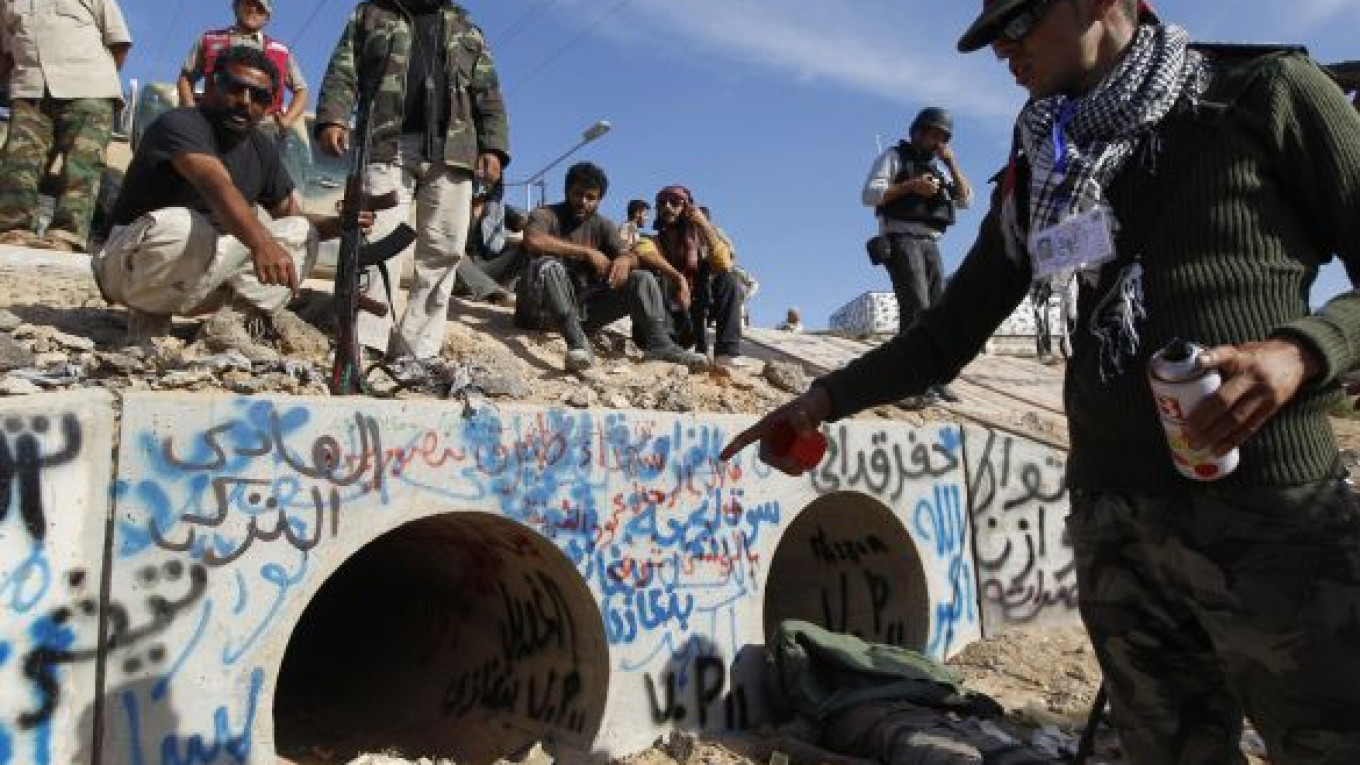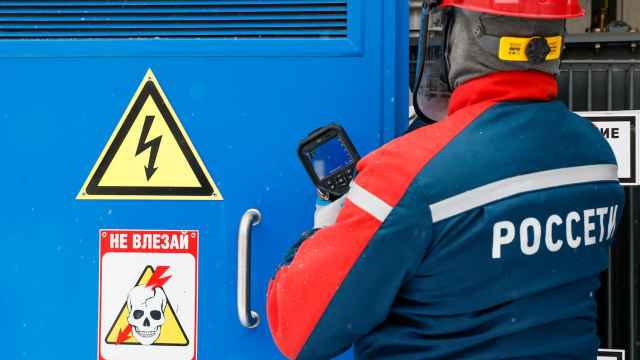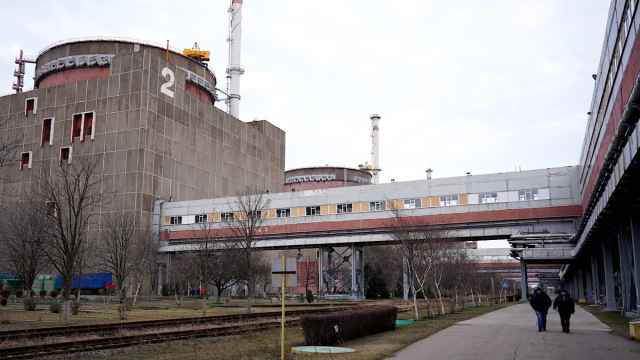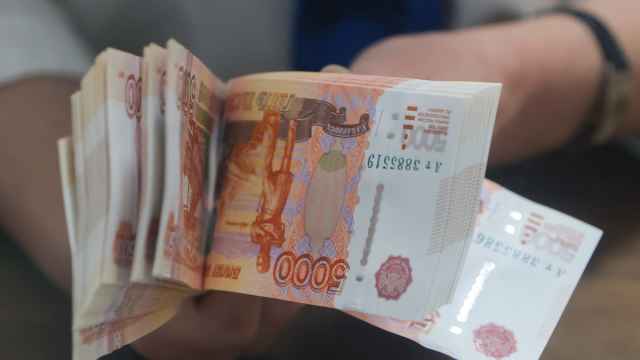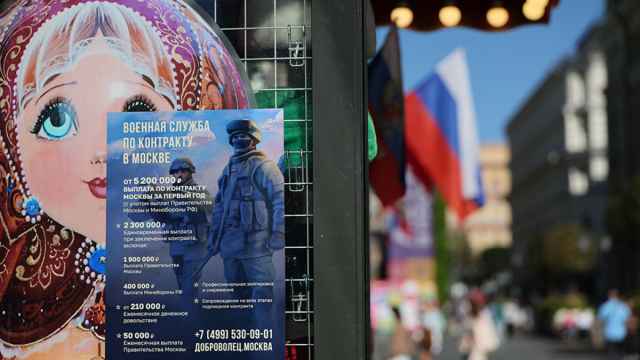President Dmitry Medvedev expressed hopes for peace and a democratic government in Libya as the African country’s new leaders declared Moammar Gadhafi dead Thursday.
“We hope that there will be peace in Libya and that all those who are governing the state, different representatives of Libyan tribes, will reach a final agreement on the configuration of power, and Libya will be a modern democratic state," Medvedev said at news conference with visiting Dutch Prime Minister Mark Rutte.
He spoke after Gadhafi's capture was reported but before his death was announced.
But Russia's presidential envoy to Libya warned that Gadhafi's death may not end the fighting in Libya.
"Today's problem of Libya is not the problem of Gadhafi's life or death," Mikhail Margelov said, Itar-Tass reported. "This is a problem of consolidating fragmented Libyan society and of strengthening the armed forces."
Russia, which had billions of dollars of oil, arms and construction contracts with Gadhafi's Libya, recognized the National Transitional Council as Libya's legitimate government on Sept. 1.
Moscow allowed Western military intervention in Libya to go ahead by abstaining from a vote on a United Nations Security Council resolution in March. It then repeatedly accused NATO forces that have been carrying out air strikes of overstepping their mandate to protect civilians and of siding with anti-Gadhafi forces in the civil war.
Medvedev had said previously Gadhafi would not be welcome if he sought refuge in Russia.
At a news conference in the capital Tripoli on Thursday, Libyan Prime Minister Mahmoud Jibril confirmed that Gadhafi had been killed. "We have been waiting for this moment for a long time. Moammar Gadhafi has been killed," he said.
Gadhafi, who ruled Libya with a dictatorial grip for 42 years until he was ousted by rebels in a bloody civil war, was killed when revolutionary forces overwhelmed his hometown, Sirte.
Accounts were hazy of his final hours. But top officials of the National Transitional Council, including Abdel Majid Mlegta, said he had died of wounds sustained in clashes.
One possible description, pieced together from various sources, suggests that Gadhafi may have tried to break out of his final redoubt at dawn in a convoy of vehicles after weeks of dogged resistance. But he was stopped by a NATO airstrike and captured, possibly three or four hours later, after gunbattles with NTC fighters who found him hiding in a drainage culvert.
Accounts from his enemies suggested his capture, and death soon after from wounds, may have taken place around noon.
There was no shortage of NTC fighters in Sirte claiming to have seen him die, though many accounts were conflicting.
(Reuters, AP)
A Message from The Moscow Times:
Dear readers,
We are facing unprecedented challenges. Russia's Prosecutor General's Office has designated The Moscow Times as an "undesirable" organization, criminalizing our work and putting our staff at risk of prosecution. This follows our earlier unjust labeling as a "foreign agent."
These actions are direct attempts to silence independent journalism in Russia. The authorities claim our work "discredits the decisions of the Russian leadership." We see things differently: we strive to provide accurate, unbiased reporting on Russia.
We, the journalists of The Moscow Times, refuse to be silenced. But to continue our work, we need your help.
Your support, no matter how small, makes a world of difference. If you can, please support us monthly starting from just $2. It's quick to set up, and every contribution makes a significant impact.
By supporting The Moscow Times, you're defending open, independent journalism in the face of repression. Thank you for standing with us.
Remind me later.


